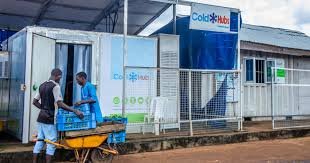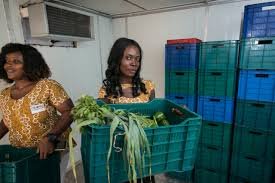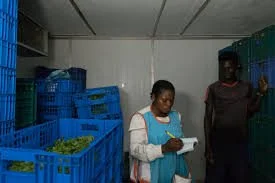In underdeveloped countries, there has been a huge demand for the invention of industrial facilities that can store and preserve food to maintain its initial nutrients and organic nature.
The ancient man adopted natural techniques for food storage, such as drying, curing, freezing, fermenting, smoking, etc.
These are now the basic ways of preserving and storing food, but the storage model was not sufficient for mankind until the invention of technological innovations like refrigeration.
In the past, food storage and preservation were major concerns for homemade food, whether cooked or for home consumption.
Local farmers and traders were unaware of the tons of food lost.
This was because they lacked knowledge of post-harvest management education; they had no idea on the amount of money lost and how it contributed to food insecurity in the nation.
To resolve the problem of food waste and spoilage, increase the agricultural value chain, ensure the viability of nutritional produce for consumption, and promote national growth and development in underdeveloped countries, there is a need to create more awareness about the use of refrigeration for fruits and vegetable storage.
Therefore, refrigeration systems play a very vital role in the storage of fruits and vegetables; they reduce and slow down the growth of microorganisms such as bacteria, mold, and yeast to prevent the deterioration of the food's nutrients.
Refrigeration for vegetables provides better temperature control, ensuring optimal conservation and organoleptic conditions of the food we purchase.
Another benefit of refrigeration is that it slows down the food's own natural processes that lead to ripening and eventual decay.
For fruits, vegetables, and other perishables, the chemical processes or temperatures that cause them to grow and ripen can also cause them to rot.
Refrigeration helps save the plant tissue from itself, keeping these foods at low temperatures to slow the aging process.
Effects Of Improper Fruit and Vegetable Storage
Below are some ways fruits and vegetables can be affected when they lack proper storage.
Bacteria and Mold: Vegetables like tomatoes need proper refrigeration immediately after harvest.
Otherwise, the temperature will rise to 40 and 140 degrees Fahrenheit, or 4.44 and 60 degrees Celsius, which will affect the freshness and soften the produce.
This can attract bacteria and molds to the produce.
According to Wonderopolis, an informational site created by the National Center for Family Learning in the United States, food spoilage is caused by oxygen (air), light, moisture, and bacteria.
Packaging: Fruits and vegetables need proper packaging immediately after being harvested from the farm.
Perishables stored in rough baskets can penetrate the skin, which leads to decay and harm.
Vegetables must be kept in proper crates and refrigerated when necessary to slow the rate of spoiling.
Food Taste Is Affected: As food begins to ripen or decay due to improper storage or a natural process, its taste may start to change.
This can make the food difficult to eat, as some people may not like the taste of the new food.
Farmers' Profits Are Affected: Food spoilage and waste put a burden on businesses.
As fruits or any perishable produce begins to lose its initial yield, farmers begin to sell it off at will.
Food Security: The United Nations revealed that food waste per citizen in Nigeria is the highest in Africa.
The reports noted that Nigerians lose at least 189 kilograms of food every year, resulting in a total of 37.9 million (37,941,470) metric tons of food every 12 months.
All these are a result of improper food storage and preservation.
ColdHubs Solutions for Vegetables and Fruit
The ColdHubs Solar Solution is designed so that during the day, as the sun comes up, the solar panel absorbs enough energy to run the cooling units.
It is capable of storing 6 kilowatts and 1.5 kilowatts of solar energy, and it stores excess energy of 4.5 kilowatts every hour into the batteries.
When there is no sunlight at night, on rainy or cloudy days, or in the case of other climate changes, the inverter automatically pulls energy from the batteries and runs the cooling units.
This is because at night or during these climatic changes, the solar panels are no longer pulling energy as they were designed.
The solution is the same technology that operates all the cold rooms across Africa, whether for 100 tons, 10 tons, etc.
To provide refrigeration services to meet the demand for these perishables and to achieve the impacts of providing cooling services for farmers and traders.
ColdHubs freezes vegetables such as cabbage, lactose, apples, tomatoes, and other vegetables and fruit with similar constituents between +8 °C (degrees Celsius) and +12 °C.
Other fruits, such as grapes and strawberries, are frozen at +5 because they have a large water content.




